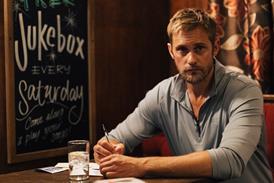Indian actor, director and producer Dev Anand died in London on Saturday night (Dec 3). He was 88 years old.
Anand was on a medical visit to the UK with his son Suneil when he suffered cardiac arrest. One of Hindi cinema’s biggest icons, Anand had a career spanning 65 years and hadn’t shown many signs of slowing down at the time of his death – his last film as director and star, Chargesheet, was released in September.
Born in Punjab, Anand studied in Lahore (then British India, now Pakistan) before moving to Mumbai in the early 1940s. He was offered his first major role in Prabhat Films’ Hum Ek Hain in 1946, during the shooting of which he struck up a life-time friendship with fellow actor Guru Dutt. He then starred in a string of films opposite actress Suraiya, considered the bigger star at the time, before getting his big break as a leading man in the Bombay Talkies’ hit Ziddi in 1948.
Following Ziddi, Anand launched his own production company Navketan, which by 2011 had produced 31 films. These included Baazi (1951), which kickstarted the trend of Bollywood urban crime thrillers in the 1950s. Directed by Dutt, the film also starred Kalpana Kartik, who Anand married in 1954 and had son Suneil with in 1956.
Renowned for his swagger, good looks and rapid-fire dialogue, Anand continued as a major romantic lead throughout the 1960s and 1970s. Notable films during this period include Guide (1965), shot simultaneously in English and Hindi as a US-India co-production, which Anand produced with his younger brother Vijay Anand as director.
Dev’s directing debut, spy drama Prem Pujari (1970) was a flop when released, but later became a cult success. His 1971 Hare Rama Hare Krishna, about India’s hippie culture, became a huge hit and he was considering a remake at the time of his death.
Anand was still lighting up the screen into his late fifties with films such as Man Pasand, Lootmaar and Swami Dada. In the 1990s he started to focus more on directing and producing, although he continued to act. In 2000 he directed, produced and starred in the critically acclaimed Censor, about the censorship problems faced by Indian filmmakers.
In 2007, Anand published his autobiography, Romancing With Life, and in Feb 2011 his 1961 Hum Dono was digitally remastered, colourised and released.
Anand was often compared with Gregory Peck, although he famously said: “I don’t want to be known as India’s Gregory Peck, I am Dev Anand”. He also said that after his death he wanted to be reborn as Dev Anand.




















1 Readers' comment